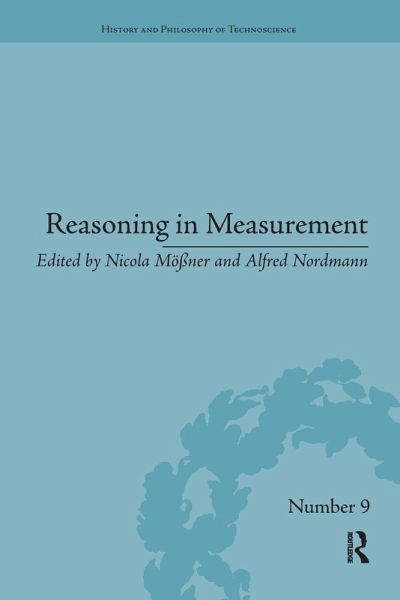
Reasoning in Measurement
Versandkostenfrei!
Versandfertig in 1-2 Wochen
74,99 €
inkl. MwSt.

PAYBACK Punkte
37 °P sammeln!
This collection offers a new understanding of the epistemology of measurement. The interdisciplinary volume explores how measurements are produced, for example, in astronomy and seismology, in studies of human sexuality and ecology, in brain imaging and intelligence testing. It considers photography as a measurement technology and Henry David Thoreau's poetic measures as closing the gap between mind and world.




